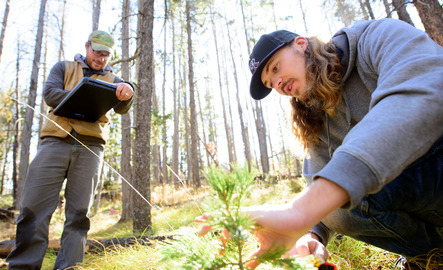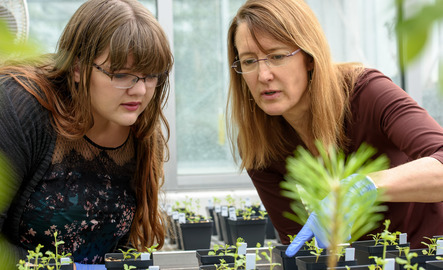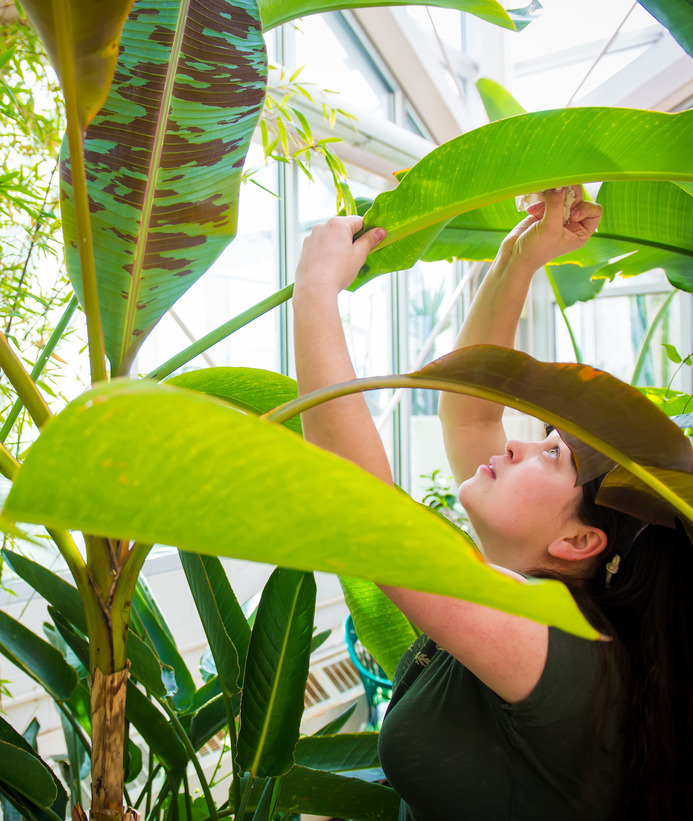About the Botany Degree Program
The botany degree program teaches botany fundamentals, as well as key life sciences and mathematics concepts. Once students have finished their introductory courses, they’re eligible to take advanced botany courses, including paleobotany, forest ecology and genetics, among others.

Our faculty have won national and international awards for being the best early career researchers in their fields. These notable faculty members include:
- Lauren Shoemaker — Assistant Professor, Ecology
- Catherine Wagner — Associate Professor, Evolution
Our department additionally has six faculty members that are in the list of the top
25 most-cited faculty according to Google Scholar, which is the most of any university.
- Brent Ewers — Professor and Department Head, Plant biophysics
- Stephen Jackson — Emeritus, Paleoecology and conservation
- Daniel Laughlin — Professor, Plant functional ecology
- William Reiners — Emeritus, Biogeochemistry
- David Tank — Professor, Phylogenetics
- David Williams — Professor, Ecohydrology

Botany Minor
If you're interested in learning more about physical and life sciences, botany and mathematics, the undergraduate botany minor is for you!
Learn MoreWhat can you do with a Botany degree?
Our students are prepared for a variety of botany jobs in academia, science, research and plant conservation! In a recent survey, we learned that 40% of our alumni are non-academic scientists, 25% work as non-scientists, 18% are academic scientists and 17% work in plant conservation.
- Botanist
- Plant Biologist
- Taxonomist
- Ecologist
- Research Scientist
- Environmental Consultant
- Conservation Scientist
- Restoration Ecologist
- Natural Resource Manager
- Forester
- Invasive Species Specialist
- Wetland Specialist
- Nursery or Garden Center Manager
- Crop Consultant
- Agricultural Extension Officer
- Pharmaceutical Researcher
- Environmental Educator
- Seed Analyst
- Landscape Restoration Planner
- Policy Analyst
- Nantucket Conservation Foundation
- Applewood Seed Co.
- Granite Seed Company
- Great Ecology
- Habitat Management, Inc.
- U.S. Forest Service
Yes, a B.S. in Botany provides a strong foundation for graduate school, if students wish to go that route. Our coursework and research opportunities provide a strong foundation for advanced studies in botany, ecology, environmental science, agriculture or another related field.
The job outlook for botany graduates is strong as green initiatives grow. Demand is rising for experts in plant science, conservation and sustainability across public and private sectors, creating diverse and impactful career opportunities.
Follow Your Passion
Studying botany at the University of Wyoming means exploring the amazing diversity of plant life nestled in the heart of the Rocky Mountains. You'll work alongside expert faculty, gain hands-on field and lab experience and prepare for a career making a difference in science and conservation.


